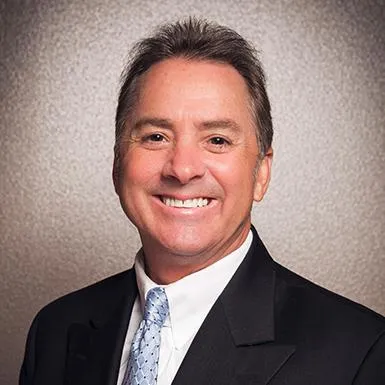

Budgeting for Unexpected Costs in Retirement
Can we talk about the “B” word, BUDGET? Yes, I know creating one is an inconvenience, but so is working out at the gym, right? But just the same as working out and getting fit, over time you’ll get to a point where you’ll only have to tweak certain points of interest.
Budgeting is something we all know we should do, but would you believe me if I told you that more than half of all Americans haven’t even attempted to calculate how much they need to save to have a comfortable retirement?
Having been in financial services for over four decades, I simply don’t understand why more folks don’t invest the necessary time to get it done. I have personally witnessed countless scenarios where having a budget salvaged a legacy, the ones without one led to total financial collapse. It’s sad but true! Unfortunately, many people have yet to confront the unexpected trials we will deal with in our retirement years.


I’m talking about the “oh shoot” moments that catch us completely by surprise! Planning for unexpected expenses and events in retirement is prudent and can help keep your retirement on task. When you begin to create a retirement spending plan, you will find no shortage of budget worksheets on the internet. However, they are unlikely to include a line item for the adult child who lost a job and needs a huge cash infusion to keep their house. The $10,000 you have to shell out for major dental work in the same year that your family dog Precious needs a $5,000 total hip replacement, will probably not be calculated within that budget either. These surprise retirement costs can include “out of left field” expenses, such as an aging parent who needs financial help and a dip in the housing market the year you hoped to downsize. Of course, there are those one-time expense shocks that you should anticipate but they still pop up suddenly, such as the cost to repair a leaky roof or cracked foundation. A simple monthly line item for house maintenance won't account for such a sudden spike in expenses. Expect the Unexpected These curve balls of life costs can easily derail a “well-planned” retirement. You can head off financial setbacks if you expect the unexpected! The reality is that there's always “stuff” that happens to all of us (remember Forest Gump), but if you have a plan to integrate this “stuff” within your budget, you will have the upper hand whenever it does occur.
A previous Kiplinger article referenced there are several ways to go about planning for what retirement expert, Henry Hebeler, and author of Getting Started in a Financially Secure Retirement calls the OSIFs, for "Oh, shoot, I forgot" items, such as the new car and the "unk unks"— he classifies for unknown unknowns, such as a house fire or flood. The best course of action is to set up a cash reserve to pay for the large surprise expenses. Hebeler suggests setting aside 10% of your savings or you could have an annual budget line item "dedicated to one of these funky things happening." You do not have to set aside the total amount at once. Every year before retirement—or even during retirement—reserve some money. “Make sure your needs are fully funded and your wants are funded 90%,” says James Nichols, head of retirement income and advice strategy for Voya Financial (formerly ING U.S.). “The other 10% can be set aside.”
Nichols says planning for the "bump in the road" helps you figure out what you may be prepared to give up. Perhaps you're willing to forgo a European vacation every five years in case a family member needs help. “If you don't go through the exercise early, it becomes a more difficult decision when it comes time to cut a check for your loved one.” Saving for Capital Expenses Hebeler suggests a "replacement reserve" for capital expenses, such as house painting and a new car or refrigerator. "Do not include the reserves in calculating your regular retirement expenses." Budgeting for a roof replacement would be an example of this reserve. Assuming the cost of a roof to replace today is $20,000 and you have had the roof for 5 years with a lifespan of 20 years. Ideally, you would have already set aside $5,000 and will continue to plan for $1,000 a year for the next 15 years. Hebeler assumes that inflation will equal investment returns.
Ignoring Health Care Expenses People are quite enthusiastic about the chance of living a longer life, yet at the same time there is mounting worry about the cost of health care in retirement, and very few people have sat down and figured out what that will be. Health care is among the top unexpected expenses that retirees cited in a survey by Voya. Nichols states, “Retirees do not appreciate the cost of health care. Perhaps they're not clear on what Medicare covers." Many believe that Medicare will cover most of their health care costs in retirement, when in reality Medicare covers only about half of a typical retiree’s medical expenses. Traditional Medicare does not cover dental, vision or long-term care. Be sure to buy a Medigap supplemental insurance policy to cover many of the costs that Medicare does not cover. Early Retirement Health issues are one of the reasons why one out of two Americans are forced to retire early. I would advise you to be prepared for it sooner than later. Surveys have shown that people think that they are going to retire much later than they do.
“It's not only about planning for out-of-pocket expenses and long-term-care insurance, but what if you're forced to retire early,” said Cyndi Hutchins, director of financial gerontology at Bank of America Merrill Lynch. “You wanted to work until 70 and you retire at 63. Make sure you have a backup plan for the years you lose because of illness.”
Unplanned or unexpected early retirement can create havoc with your retirement plans. Countless people who had to retire early weren't quite ready financially. Not having those five to ten years to create greater retirement wealth can have a significant impact on retirement goals. Many will have to begin taking Social Security earlier than expected, which will also negatively affect your retirement income.
“Remember smart financial decisions impact the quality of your life”
If you are not absolutely certain where you stand financially when considering these important issues or you would be interested in a no non-sense second opinion contact us @ (832) 559-8777 or visit [email protected]
